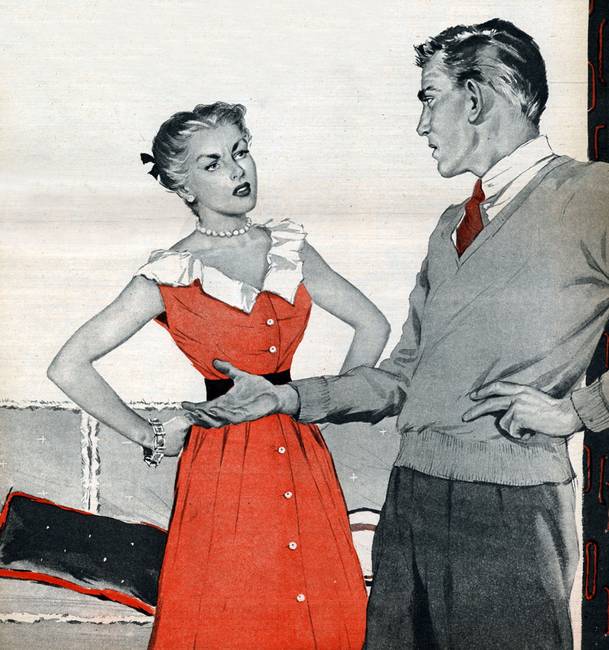Wednesday
As I continue to reflect on Thor Tangeras’s Literature and Transformation: A Narrative Study of Life-Changing Reading Experiences (see my previous posts here, here and here), I’ve just had a realization: if I respond so strongly to Tangeras analyzing life-changing reading experiences, it’s because it’s what I used to do with my students. It’s the part of my teaching that I miss the most.
Today I report on Tangas’s interview of a Norwegian psychotherapist who said that an Ingrid Hagerup poem changed the way she understood her parents’ constant quarreling. I also helped launch her decision to study psychology. Here’s the poem:
Episode
Theirs was not a quarrel, not in the slightest.
Of course not, he said. – Thank you for the meal.
And though their polite words were uttered lightly
They gleamed with old hate under icy seal.
You are welcome, was all that she replied.
She pushed the chair up to the table, intending
With narrow mouth and lips so firmly tied
To build a fence behind her words, unbending.
They stood silent for a moment, on guard,
Both searching for new weapons, the most searing
phrase conceivable, to be thrust so hard,
A poisoned dagger-blade through love’s woof tearing.
She felt venomous words well up inside.
A yellow delight at the thought of harming
Him rose up in her so ruthless and snide.
Then fingers fumbled through his hair, disarming
Her – and now, suddenly, her eyes were filling
In a powerless, inexplicable pain.
She sensed deep beneath all the hate so chilling
The tensed cord from his heart to hers again.
Esther said that the poem, which she read in school as a 17-year-old, it gave her insight into “the complexity and contraries of my parents’ terrible marriage.” She recalls the moment with Tangeras::
I had an instant illumination: ‘Yes, this is them! Two forsaken people.’ ‘Oh, my God!, is that how it is?’ And I also thought: ‘So I am not the only one to have experienced something like this. It can’t be just them two who are like that. It must be universal.’ Yes, I realized that this experience must be common to all people. All of a sudden I could see them as they were, as human beings. As two vulnerable people. That there was a reason why they were like that. And that there was a depth there; something went on beneath the surface behavior. I could see this, because the poem describes precisely how they would act….
A realization went through me: ‘poor mum and dad. They must be suffering so.’ The poem helped me over – into that experience.
And further on:
All this I began to understand then, although that would take many years and I had to move out and start my own life. Which I did as soon as I could. Because it was still a burden to live in the conflict zone between my parents. Her silence and anger, and having to listen to all her moaning and complaining about how awful he was. He was almost frightened of his wife, he was. And she would scream at him what a coward he was. We had to cover our ears on occasions, to protect ourselves.
The turning point in the poem occurs when the wife sees the husband fumbling with his hair:
Thor: In the poem it says ‘and suddenly …” It’s the language of the body. He is despairing.
Esther: When he, he puts his hand to his head, yes, and strokes his fingers through his hair. Then suddenly she becomes aware that he is not out to hurt her. He doesn’t understand much either, and really he feels quite helpless, doesn’t he. And so she no longer feels the urge to say the poisonous things she had intended to.
The metaphor of the tensed cord also leads to a fascinating insight:
Thor: What about that tensed cord? It can only be pulled so far?
Esther: Yes, but that’s when they feel – and this is something that I only thought much later, not when I first read it – what she feels then is the emotional tie between the two, which is a tie that holds them, it has not been torn asunder despite all the pain they have undergone. And that is what I realized was the case with my parents too…Thor: I find it fascinating how she has this sudden insight in the poem, and you have a sudden insight about your parents when reading this.
Esther: They were in need of compassion. That’s what I suddenly understood. They weren’t to blame for it! There was love there. And this love was very hard to understand for a young person. Is this love, all the shouting and the silences and the black, black moods? Can there really be something warm, true goodness, underneath it all? Yes, there was. And that’s when I realized: ‘There is a good reason why they are together.’ It has helped me ever since. When I have been working with couples who apparently hate each other’s guts, when one of them screams: ‘I hate you!’ – I never believe that to be the case. That affect is a form of camouflage emotion. ‘Deep below hatred and cold’ there is that emotional chord that binds them.
The truth delivered by poetry never ceases to amaze me.
